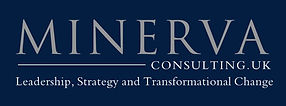Creating The Conditions For Success
- Jeremy Tozer

- Apr 16, 2020
- 3 min read
Think of a team, any team, in any sport. For the sake of example, choose the English rugby world cup (RWC) team. If you ask the question ‘what are all the things that affect the team’s ability to succeed?’ the answer will include, among other things:
Fitness (power and speed), passing and kicking skills
Knowing the rules of the game and of the RWC, knowledge of competitors
Quick thinking, co-operation, drive and determination, confidence, teamwork and self-discipline
A clear, shared aim and purpose, understanding the RWC competition strategy and the game plan for each match (tactics)
Team identity, cohesion and morale
Training, coaching, facilities to train in and equipment to train with Financial resources, and supporters at matches

If you think about all the factors which affect the team’s ability to succeed, they may all be separated out under the headings of:
Ability —a function of process, knowledge and skill, applied with the appropriate behaviour and attitude (which you may call ‘flexible style’ or ‘emotional intelligence’), together with the right level of intellect for the level of work and complexity faced. Clarity —a function of the right information and the effective understanding of that information, to enable alignment of plans, priorities, activity, roles and role-relationships that contribute towards achieving 'the higher intent' or ‘desired future state’. Environment —the infrastructure of the work place (including its systems, policies and processes, structure, alignment of accountability and authority, resource allocation, the physical workplace), beliefs and myths, the organization's ‘philosophy’ or approach to its business, products and services that staff have confidence in, and importantly the example of its leaders. A major part of anyone’s environment is the behaviour and attitude of one’s immediate boss and the climate that that leader creates. The external ‘market’ and/or ‘geopolitical climate’ is part of environment; this may be influenced by large ‘players’ but not directly controlled. Research shows that up to 70% of behaviour in organizations is shaped by ‘environment’.

The result of these three ACE conditions are business performance, corporate culture and business reputation. This concept applies at any level in any activity; and creating these ACE conditions is a basic job description for any leader —although senior leaders have more authority to shape the ‘systemic’ aspects of environment which creates the framework for everyone else to work within.
This concept may also be deployed as a diagnostic tool when analysing reasons for high performance that you wish to repeat (England in the 2003 RWC), or failure that you don’t (England in the 2011 and subsequent RWC). The presence of these conditions is evidence of leadership —creating these conditions is the leader’s responsibility —but the leader does not need to and can’t provide all the ‘leadership’!
Some important points to note:
A leader’s own leadership ability dictates how effectively the leader may create and shape the clarity and environment for his/her team members, as well develop team members’ ability through coaching, feedback, and so on.
Clarity must be created first as it dictates the requirements needed in the other two areas. In my experience 80% of performance improvement, and the most rapid performance improvement, comes from increased 'clarity'.
How a leader ‘creates clarity’ plays a significant part in shaping ‘emotional engagement’ (ownership, commitment, enthusiasm etc) and the immediate working environment.
Empowerment, motivation and communication are 'big words', the constituents of which span all three ACE areas. For example, you can’t just tell people that they are empowered and expect them to feel and act as empowered people —among other things they need to be clear on ‘what, why, and how’ and kept ‘in context’; be confident in their own ability, be trusted and have defined role-relationships and accountability and authority alignment (don’t just tell them to influence, that's unfair and stress-inducing since their role has not been legitimised).




Comments